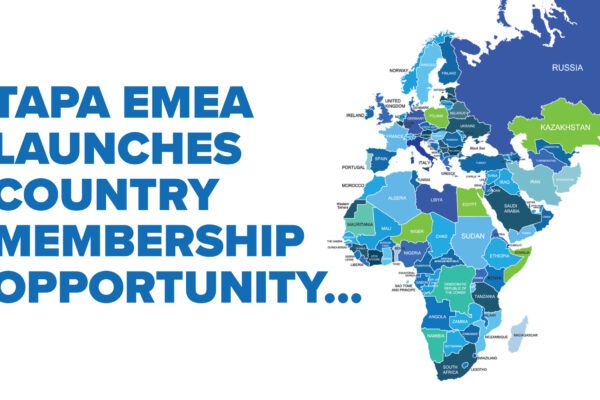
End of the Road
At first glance, the UK government’s new higher penalties to encourage trucking companies and drivers to secure their vehicles to prevent authorised border crossings by clandestine entrants looks like a simple – if extremely unpopular – stepping up of immigration policy.
For many businesses involved in shipping goods to and from the UK, however, the changes which came into force from 13 February 2023, are just another barrier to trade and a further damaging impact to the resilience of their supply chains. Whether or not the new measures reduce the number of migrants crossing the channel into the UK remains to be seen but, for now, the biggest, and most unwelcome, aspect of the new legislation is likely to be felt by British consumers and the companies fulfilling the country’s supply chains.
So, what’s changed?
On 13 February, fines for lorry drivers found with illegal immigrants hiding in their vehicles, increased fivefold from £2,000 (approx. €2,250) per stowaway to potentially £10,000 (>€11,000) under the new revision of the UK’s Clandestine Entrant Civil Penalty Scheme. The change has brought quick and widespread condemnation from industry groups.
Raluca Marian, Director of EU Advocacy, at IRU, the international road union, called the measures ‘misguided,’ saying the changes do not target the root causes of clandestine entrants. Consequently, IRU says the scheme puts supply chains at risk, stating that the measures previously in place already cost haulage firms over £1 billion annually (>€1.1bn). “Huge increases in penalties, combined with the suppression of the presumption of innocence for truck drivers and transport operators, will deter even more transport firms from running these crucial freight routes across the English Channel, without providing a solution to the clandestine immigration challenge. This will increase transport costs, risks, delays, and instability for supply chains.”
“Solutions need to address the causes of the problem and not just assume that haulage firms and drivers are to blame. We should rather be encouraging road transport companies that have invested in adequate security measures for their drivers, vehicles, and operations,” she said.
Whilst acknowledging the UK Home Secretary “will consider requests from responsible persons to apply means testing to reduce any remaining level of penalty,” the British International Freight Association (BIFA) warns aggregate fines may be higher. Chris Yarsley, Senior Policy Manager at Logistics UK, added: “We hope that government will work with the sector to help compliant operators demonstrate they are making every effort to comply with the new rules. Our nation’s highly-interconnected supply chain relies on the smooth movement of goods from across the EU, particularly at this time of year, and any delay to goods would be detrimental to trade and could deter future movements of goods to the UK.”
And, herein lies the biggest the biggest challenge for UK supply chains and businesses doing business with British companies. The latest change is just another significant hurdle to overcome so soon after the impact on tradeflows caused by the UK leaving the European Union. For some drivers and companies, this latest barrier may be the end of the road for their channel crossing operations.
For independent owner/drivers earning an average of around €200 per day, the added potential penalties financial risks associated with crossing the UK border make the UK an increasingly undesirable destination – and many companies outside of the UK may share this mindset.
Vigilant spoke to a senior manager of one major transport company, who spelled out the reality of the situation.
“My initial reaction is it will have negative consequences. Many truck drivers and trucking companies have already stopped serving the UK for several reasons; ID cards are no longer accepted, the additional entry and exit procedures, and the resulting risk of delays. I’m certain that many more drivers will refuse to go to the UK now the potential penalty is so heavy,” they said.
“In terms of you is liable for penalties if they are incurred, traditionally many transport operators would expect the driver to pay any fine because the driver should have been instructed on how to mitigate the risk of clandestine intrusion of their vehicle. Therefore, if migrants are found onboard, the driver is deemed not to have followed these instructions. But changes in the driver market and driver shortages mean drivers may walk away from an employer if they don’t feel they’re being treated well because they know they will instantly find a new job. So, who pays is open to debate.”
Some operators found to be carrying migrants have not been fined previously because they’ve been able to prove they’ve taken all of the measures outlined in the UK government’s guidelines, but migrants were still able to enter vehicles at a port or while the truck was on a ferry crossing the channel. Technology and other security measures can help to reinforce a company’s innocence. It’s now much easier to prove all checks on a vehicle has been completed, trailers are locked, and screening has taken place 2-3 times because of the multiple layers of security in France and on arrival in the UK. At the Eurotunnel terminal, vehicles are checked using CO₂ monitors, x-ray screening and by security dogs.
“The risk of higher penalties creates yet another deterrent for drivers and transport companies to go to the UK when there are plenty of other places they can go. The road transport market may have flattened in the last two quarters but it’s still buoyant and rates are still high. So, drivers don’t have to come to the UK – and many of them don’t want to come to the UK because they don’t own a passport, while the high number of Ukrainian drivers in Europe can’t enter the UK without a visa but they can enter the rest of the EU.”With drivers continuing to encounter hordes of desperate migrants in Calais trying to cross to the UK, they need no other reminders of the risks they face to their livelihoods under the new UK scheme. How many are prepared to take this risk? Only time will tell.






















